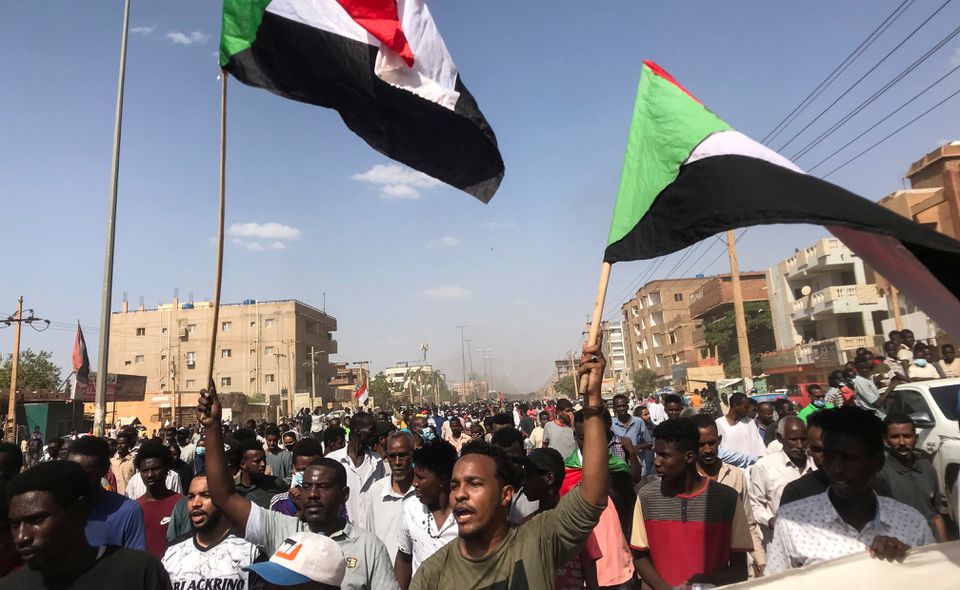Protests in Sudan are continuing, as protest leaders said that they would not stop until the military reverses its recent takeover and hands over the rule of the country to a civilian government.
So far, the death toll of the protests is at least 12 people and hundreds others injured.
The Spokesperson for the Sudanese professional association, Mohammed Yousef al-Mustafa insists those behind the takeover be held accountable.
“It is either the Military ruling with dictatorship and we stand against them every day no matter the killings, detentions and rapes, or they leave the political scene to the people to be responsible for themselves, manage the country the way they want and do what they believe is right.”
On October 31st, the UN urged Sudan’s junta to reverse their takeover of the country, a day after thousands of people took to the streets in the largest pro-democracy protest since last week’s coup.
Mohammed Yousef al-Mustafa outlined some qualities he believes the country needs in their next leadership.
“A government that the Sudanese revolution agree on should be formed; a government that consists of skilled people who are biased towards democracy and human rights and without any elements from the military or the political parties can solve the main problems in Sudan.”
South Sudan has deployed a delegation, led by presidential advisor Tut Gatluak, to Sudan to mediate between the military and the civilian leaders.
Gatluak met with Coup leader General Abdel Fattah al-Burhan and said he would meet with Abdalla Hamdok, the deposed prime minister who remained under house arrest in the capital Khartoum, as part of his mediation efforts.
On October 30th, Hamdok said that he is ready to negotiate on the formation of a new government on condition that the military reverses its coup and releases detainees.
The sources who met Hamdok said he wants dialogue but on condition the situation be returned to the way it was on the eve of Monday’s coup, which derailed Sudan’s transition to democracy after decades of authoritarian rule.
Meanwhile, the crisis in Sudan is worsening, as western states cut off hundreds of millions of dollars in desperately needed aid to Sudan since Burhan dissolved Hamdok’s cabinet and soldiers rounded up government ministers, demanding the civilian-led cabinet be reinstated.
On October 28th, Burhan said Hamdok had been offered a chance to return as prime minister. “We told him that we cleared the stage for you … he is free to form the government, we will not intervene in the government formation,” he said.
One minister in Hamdok’s ousted government, speaking on condition of anonymity, said cabinet members were not opposed to standing aside for a new government, provided it is led and chosen by Hamdok, and the transitional agreement is restored in full.
Speaking to Reuters, Burhan’s media advisor Brigadier Altahir Abuhaja rejected Western criticism that the takeover was a betrayal of the Sudanese people.
“What happened in Sudan is not a betrayal or a coup but a righting of the path of the revolution. General Burhan is the most concerned with the democratic transition.”
The main compromise under discussion, say politicians who have presented it, is a proposal for Hamdok to be given full executive powers and appoint a cabinet of technocrats.
The proposal, which the sources say has been presented to all sides, would do away with the 14-member power-sharing Sovereign Council in favour of a three-person honorary council.
Political parties, rebel groups, and the military, partners in the pre-coup government, would be represented in parliament, and the military would continue to lead a Security and Defense Council, they said.
MORE ON THE TOPIC:




